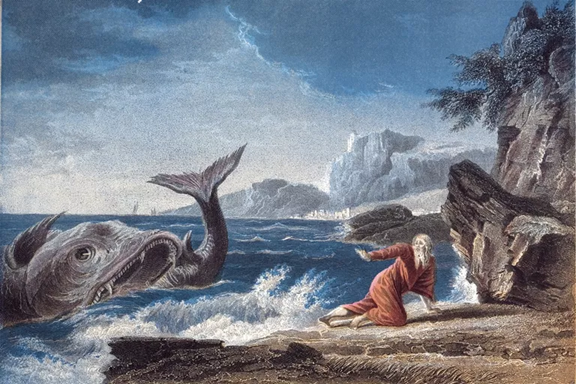To accompany your Come Follow Me study for November 21-27
In addition to reading the indicated chapters, you may wish to:
- Read the applicable portions of the Old Testament Institute Student Manual at https://www.churchofjesuschrist.org/study/manual/old-testament-student-manual-kings-malachi/chapter-9?lang=eng and https://www.churchofjesuschrist.org/study/manual/old-testament-student-manual-kings-malachi/chapter-11?lang=eng
- Watch the video Come Follow Me (Nov 21-27) – Jonah & Micah | Surprise Opposites at Come Follow Me (Nov 21-27) – Jonah & Micah | Surprise Opposites – YouTube
- Watch the video Overview: Jonah at https://www.youtube.com/watch?v=dLIabZc0O4c
- Watch the video Animated Bible Stories – Jonah at https://www.youtube.com/watch?v=lPsm3DdE8_M
- Watch the video Overview: Micah at https://www.youtube.com/watch?v=MFEUEcylwLc
If you would like a Kahoot game related to this material which you could use for personal study or use with your family or your class, click here: https://create.kahoot.it/share/jonah-and-micah/927366b2-c03d-4f33-a0b9-fcdf703e33fc (To use it with a group, after clicking on this link, you will need to log into Kahoot, creating a free account if you have not done so previously, then click on the blue “Start” button.)
Points to Ponder in Jonah
1. What do you consider to be the three most significant truths or principles taught by the book of Jonah?
2. Jonah is often criticized for his apparent cowardice, lack of faith, and rebellion. What can you say in his defense?
3. What other lessons of significance can we learn from the book of Jonah?
Meandering through Micah
Find the scriptural reference for each of the following, which can be found in chronological order in the book of Micah:
1. Micah was not only a prophet but a “seer,” who had had a vision. (Chapter 1)
2. Many people prefer prophets who will tell them that whatever they are doing or want to do is right. (Chapter 2)
3. Micah foresaw a future day of apostasy when there would no longer be revelation from God. (Chapter 3)
4. Micah did not look favorably on the idea of a paid ministry. (Chapter 3)
5. Passage which Micah either borrowed from Isaiah, Isaiah borrowed from Micah, or both borrowed from a common source to tell of a day when universal peace will prevail, and God’s law will be respected throughout the world. (Chapter 4)
6. Two verses quoted by the Savior in 3 Nephi 20. (Chapter 4)
7. Jesus would be born in a relatively insignificant small town. (Chapter 5)
8. The Lord intends Israel to be an uplifting influence among all people. (Chapter 5)
9. Eight more verses quoted in the Book of Mormon. (Chapter 5)
10. “In these few lines Micah has summed up the essence of the teachings of the prophets.” “Verse justly regarded as one of the memorable and timeless expressions of Old Testament ethical religion (cf. James 1:27).” (Chapter 6)
11. Passage quoted or paraphrased by Jesus in Matthew 10. (Chapter 7)
12. The gathering of Israel in the last days will be accompanied by miracles comparable to those of the Exodus. (Chapter 7)
Possible Answers to Points to Ponder in Jonah
1. What do you consider to be the three most significant truths or principles taught by the book of Jonah?
I would pick:
- God loves not only His covenant people but the Gentiles and is equally willing to bless them if they will repent.
- We will be blessed for accepting whatever calling or assignment the Lord may choose to give us.
- With God all things are possible. (Even living for three days in the belly of a great fish and converting the most brutal of ancient empires.)

2. Jonah is often criticized for his apparent cowardice, lack of faith, and rebellion. What can you say in his defense?
Possibilities include:
- Jonah had to have been a pretty good guy for the Lord to have spoken to him in the first place, and for Jonah to have been able to hear and recognize His voice.
- The Assyrians, to whom Jonah had been called to preach, were noted for their barbaric cruelty and might well have been just as happy to skin Jonah alive or roast him slowly as to look at him.
- When confronted by the sailors, Jonah admitted to worshipping Jehovah, “the God of heaven.”
- Jonah volunteered to be cast into the sea to calm the storm.
- Rather than let him drown, the Lord loved Jonah enough to have a great fish swallow him up and later vomit him alive onto dry ground.
- While in the fish’s belly, Jonah prayed to the Lord and went through the repentance process.
- When given a second chance, Jonah did go to Nineveh and preach, as he had been commanded.
- Jonah was such an effective preacher that the entire city of Nineveh was converted.

3. What other lessons of significance can we learn from the book of Jonah?
Possibilities include:
- The Lord can work through those not of our faith, as when He caused the sailors to identify Jonah as the cause of their nautical problems through the casting of lots.
- Jonah’s three days and nights in the fish’s belly foreshadowed Jesus’ similar time in the tomb prior to His resurrection. (Matt. 12:39–41; 16:4; Luke 11:29–30).
- God is a “God of second chances.” He didn’t give up on Jonah until He had given him every opportunity to fulfill the mission to which he had been called.
- Jonah twice mentioned the importance of the holy temple while he was in the fish’s belly.
- The Lord can also work through dumb beasts, such as the fish to whom He spoke prior to its vomiting Jonah onto the dry land.
- Jonah must have been not only a very effective missionary but a great organizer who had to have had a lot of help in getting his message to a city so large it was 60 miles in circumference and had a population so large that there were 120,000 children so young they didn’t even know their right hand from their left.
- Contrary to Jonah 3:10, God did not “repent,” but as the Joseph Smith Translation makes clear, upon seeing the people’s repentance, the Lord did not carry out the destruction He had threatened if they persisted in their evil ways..
- Minor human imperfections, such as Jonah’s childish anger when the gourd shading him died, do not render a prophet or a disciple useless in the hands of the Lord.
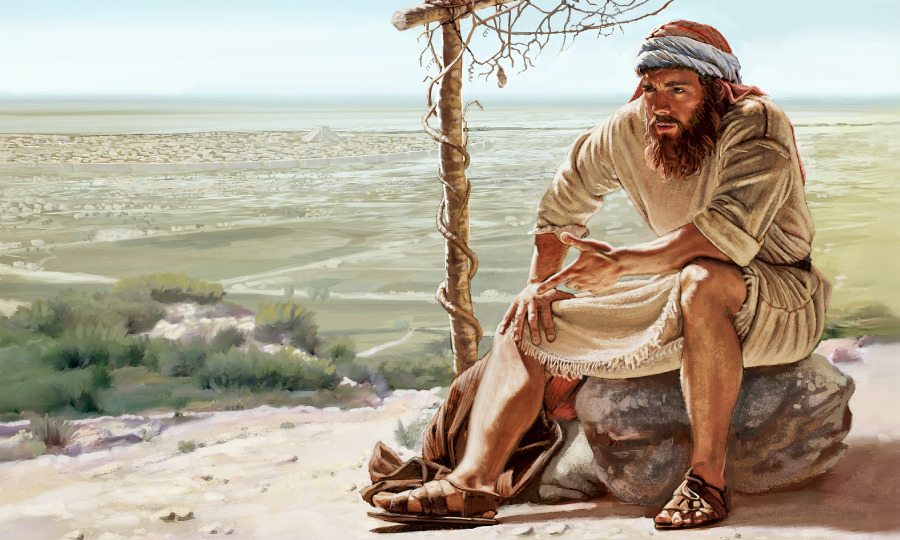
Answers to the Meandering through Micah Exercise
1. Micah was not only a prophet but a “seer,” who had had a vision. (Chapter 1)
1:1
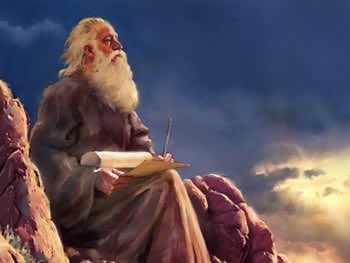
2. Many people prefer prophets who will tell them that whatever they are doing or want to do is right. (Chapter 2)
2:11
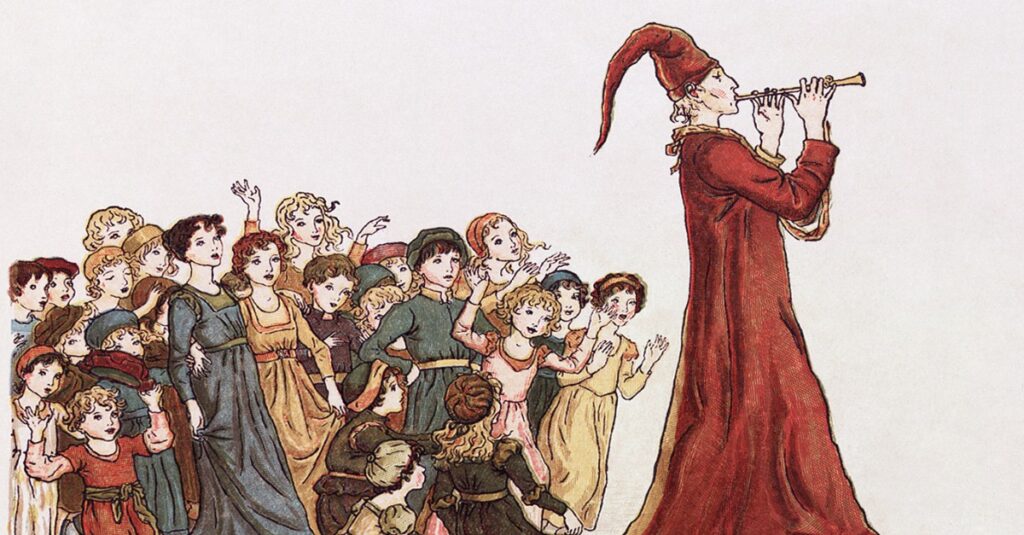
3. Micah foresaw a future day of apostasy when there would no longer be revelation from God. (Chapter 3)
3:6-8

4. Micah did not look favorably on the idea of a paid ministry. (Chapter 3)
3:11
5. Passage which Micah either borrowed from Isaiah, Isaiah borrowed from Micah, or both borrowed from a common source to tell of a day when universal peace will prevail, and God’s law will be respected throughout the world. (Chapter 4)
4:1-3. There is no agreement among scholars as to which came first, Micah 4:1-3 or Isaiah 2:2-4. The two prophets were contemporaries. Both could have borrowed the idea of beating swords into plowshares from Joel 3:10, though it is also possible that Joel himself was repeating either Micah’s or Isaiah’s message, as there is no agreement as to whether Joel preceded or followed those prophets. Some propose that the Lord could have independently inspired each prophet with an identical message. But anciently there was not the same concern with giving literary credit as there is today. One writer observed that “one Bible scholar has found that the four gospels attest to the fact that Jesus Christ and the apostles consistently quoted scripture. He calculated that over “ten percent of the daily conversation of Jesus consisted of Old Testament words quoted literally” and nearly 50% of the Lord’s words as quoted by John were quotations from the Old Testament.” Yet neither the Savior nor His apostles felt it necessary to clutter their messages by constantly citing references to the original Old Testament passage from which they were teaching.

6. Two verses quoted by the Savior in 3 Nephi 20. (Chapter 4)
4:12-13
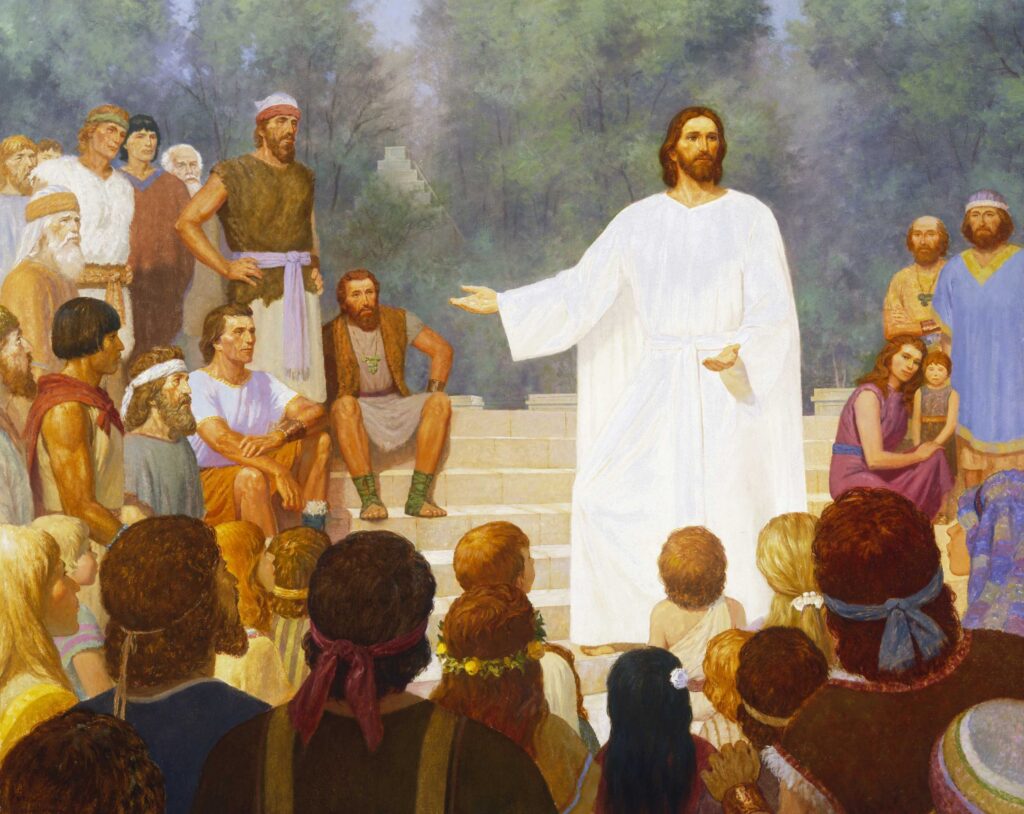
7. Jesus would be born in a relatively insignificant small town. (Chapter 5)
5:2

8. The Lord intends Israel to be an uplifting influence among all people. (Chapter 5)
5:7
9. Eight more verses quoted in the Book of Mormon. (Chapter 5)
5:8-15
10. “In these few lines Micah has summed up the essence of the teachings of the prophets.” “Verse justly regarded as one of the memorable and timeless expressions of Old Testament ethical religion (cf. James 1:27).” (Chapter 6)
6:8

11. Passage quoted or paraphrased by Jesus in Matthew 10. (Chapter 7)
7:6
12. The gathering of Israel in the last days will be accompanied by miracles comparable to those of the Exodus. (Chapter 7)
7:15
